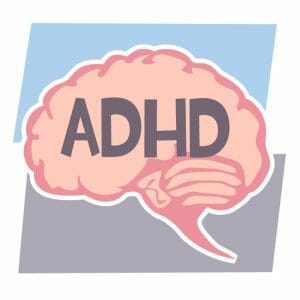Attention Deficit Hyperactivity Disorder (ADHD) is a neurodevelopmental disorder commonly associated with children, but it frequently continues into adulthood. It manifests itself through inattention, hyperactivity, and impulsivity, causing difficulties in academic, professional, social, and personal settings. Additionally, it can create career challenges; there are specific ADHD jobs to avoid with this condition.
As a parent, teacher, or friend, it is crucial to support those living with ADHD and create inclusive environments where they can thrive despite the hurdles they face. In this blog post, we will delve into defining ADHD, understanding its symptoms, discussing strategies for overcoming these challenges and providing the necessary support for success.
Defining ADHD: What does it mean to have ADHD?
ADHD is a complex neurodevelopmental disorder that primarily affects executive functioning, which is responsible for planning, organizing, initiating, and completing tasks. There are three main types of ADHD: predominantly inattentive, predominantly hyperactive-impulsive, and combined type. Each type has distinct symptoms that impact specific areas of a person’s daily life. While there is no known cure for ADHD, with proper diagnosis and treatment, individuals can manage and overcome the challenges they face.
Recognizing Symptoms: How can you identify and understand ADHD symptoms?
Symptoms of ADHD can vary based on the type and severity of the disorder. Common indicators of inattention include having difficulty organizing, completing tasks, following directions, forgetfulness, and being easily distracted.
Hyperactivity and impulsivity symptoms might manifest as restlessness, excessive talking, interrupting, and acting without considering consequences. Symptoms usually surface during childhood and can persist into adulthood, negatively impacting various aspects of a person’s life, such as school, relationships, and job performance.
Strategies: How can those with ADHD overcome challenges and succeed in various settings?
Fortunately, many methods are available to support individuals with ADHD in achieving success academically, professionally, and socially. At school, teachers and parents can support students by providing a structured and consistent environment, breaking down tasks into smaller steps, using visual aids, and offering praise and encouragement. In the workplace, adults with ADHD can benefit from creating to-do lists, setting aside designated workspaces, utilizing technology to set reminders, and seeking accommodations from their employers.
In relationships and social settings, open communication, actively listening, and setting boundaries are crucial for success. It is important to remember that each individual’s needs will be unique, and it’s crucial to adapt strategies accordingly.
Treatment Options: What options are available to support those living with ADHD?
A wide range of evidence-based treatments is available to aid those with ADHD in managing their symptoms and improving their quality of life. Often, a combination of treatments will work best, with common options including medication, behavioral therapy, and psychoeducation.
Medication can help alleviate symptoms by targeting imbalances in brain chemistry, while behavioral therapy assists in developing healthy coping mechanisms and effective strategies for organization and planning. Psychoeducation, which involves educating both individuals and their families about the disorder, helps build understanding and support systems to overcome challenges long-term.
Supporting an ADHD community: How can we create a more inclusive environment?
Creating a supportive and inclusive environment for those with ADHD requires empathy, understanding, and ongoing adjustments. Parents can advocate for their children’s needs at school and seek appropriate resources and accommodations. Educators can undergo training to better recognize ADHD symptoms and implement strategies to support students’ success.
Employers can offer flexible work policies, enable open-door discussions about employee needs, and strive to cultivate a diverse and inclusive workplace. Ultimately, by acknowledging the unique strengths and challenges of those living with ADHD, we can contribute to creating a world where everyone can reach their full potential.
Understanding and embracing ADHD starts with recognizing its impact on individuals’ lives and fostering supportive environments to help them succeed academically, professionally, and socially. Combining evidence-based treatment strategies, individualized coping mechanisms, and advocating for necessary accommodations can substantially improve the lives of those living with ADHD. By working together, we can create a world where the unique qualities of those with ADHD are both recognized and celebrated.
